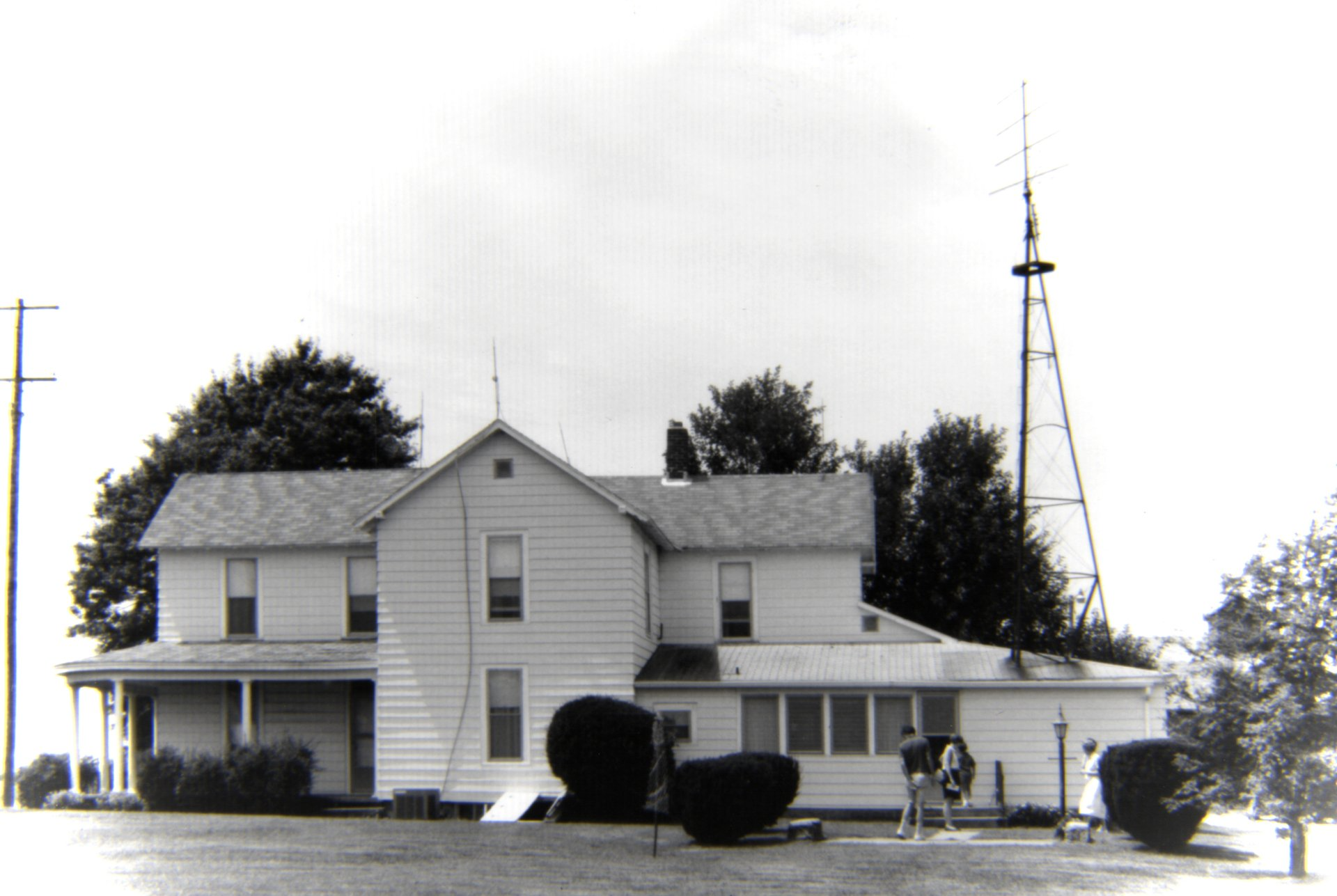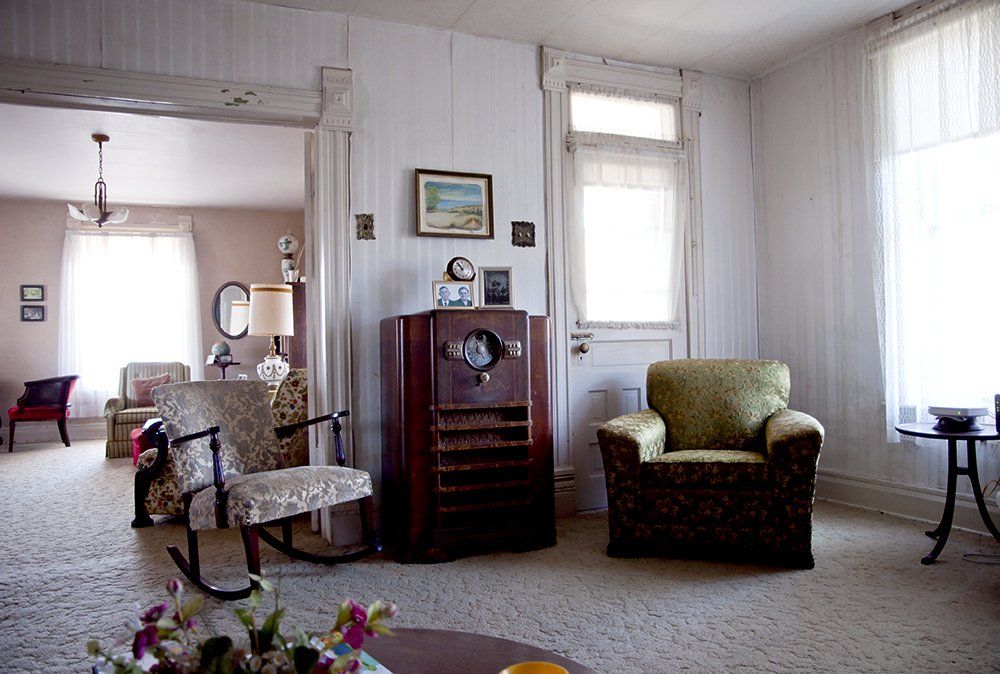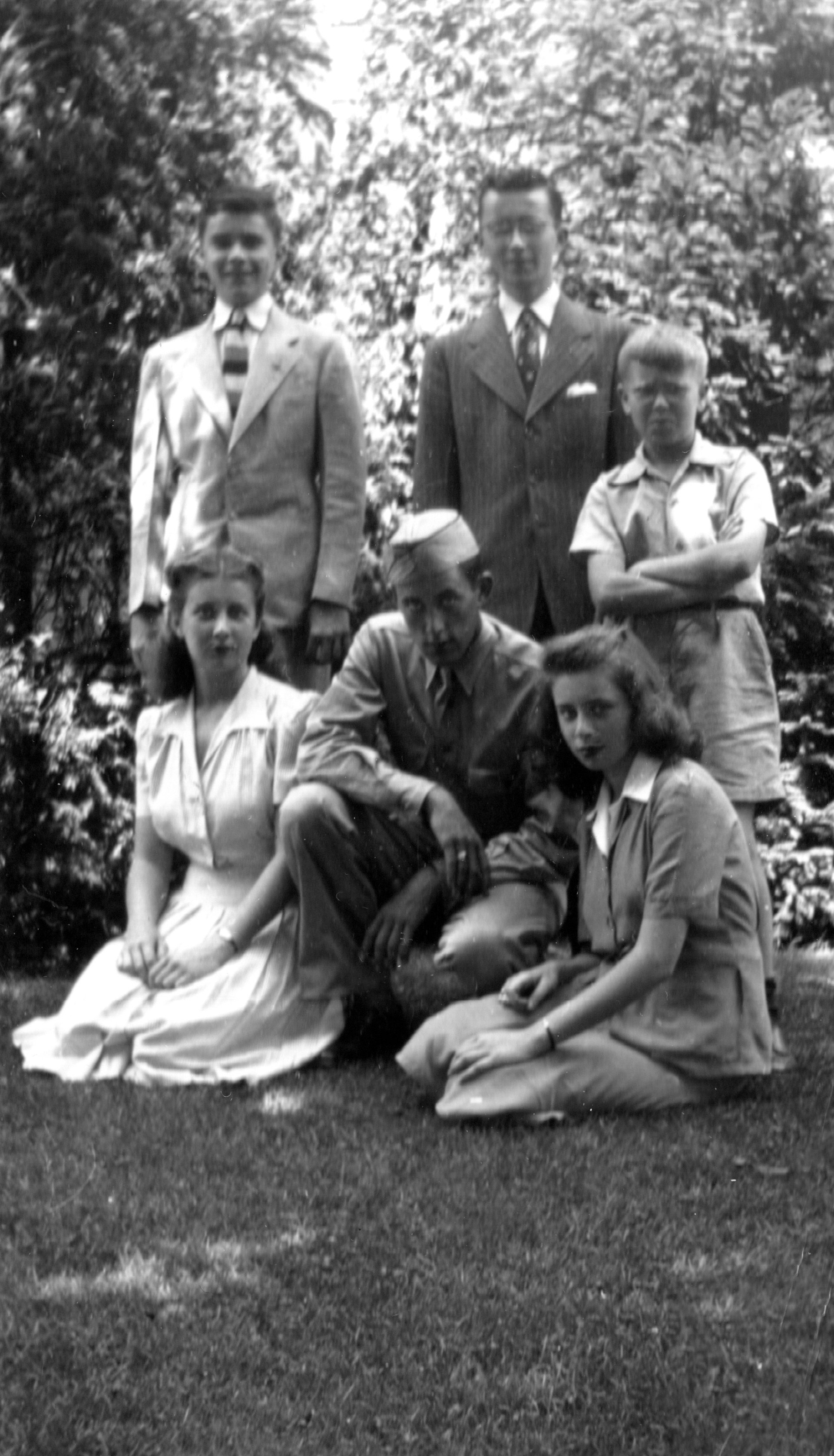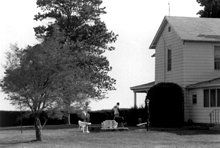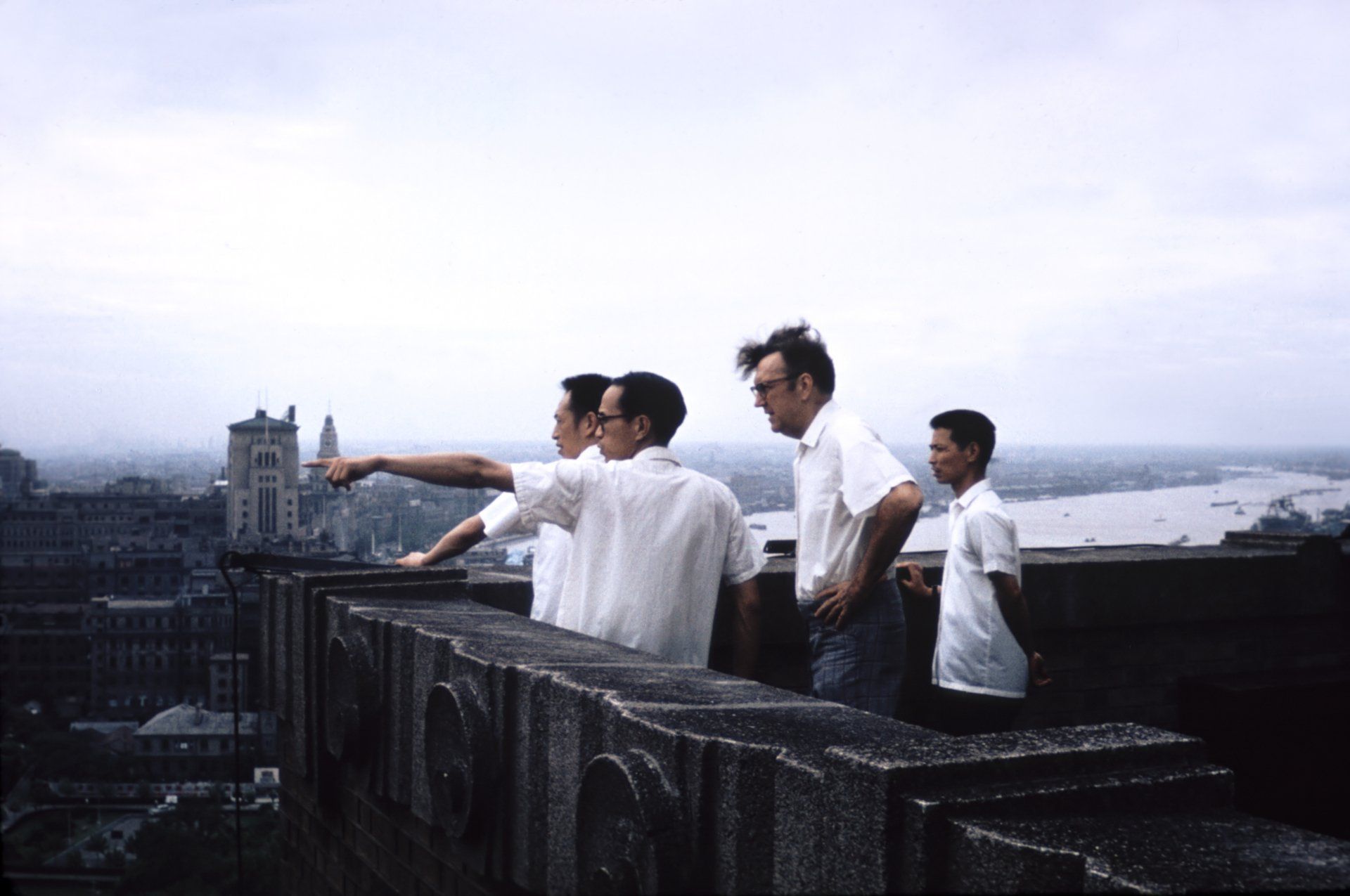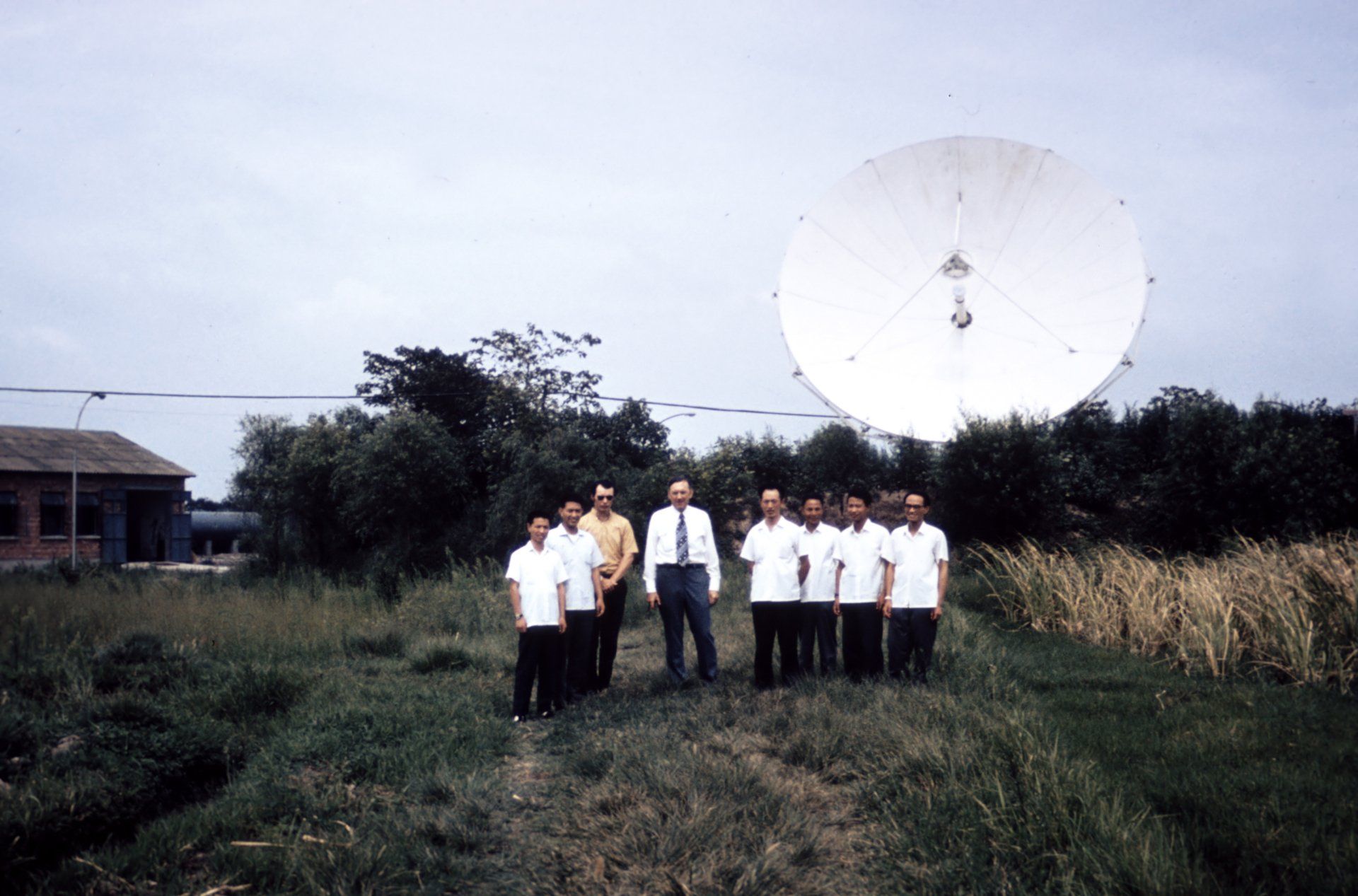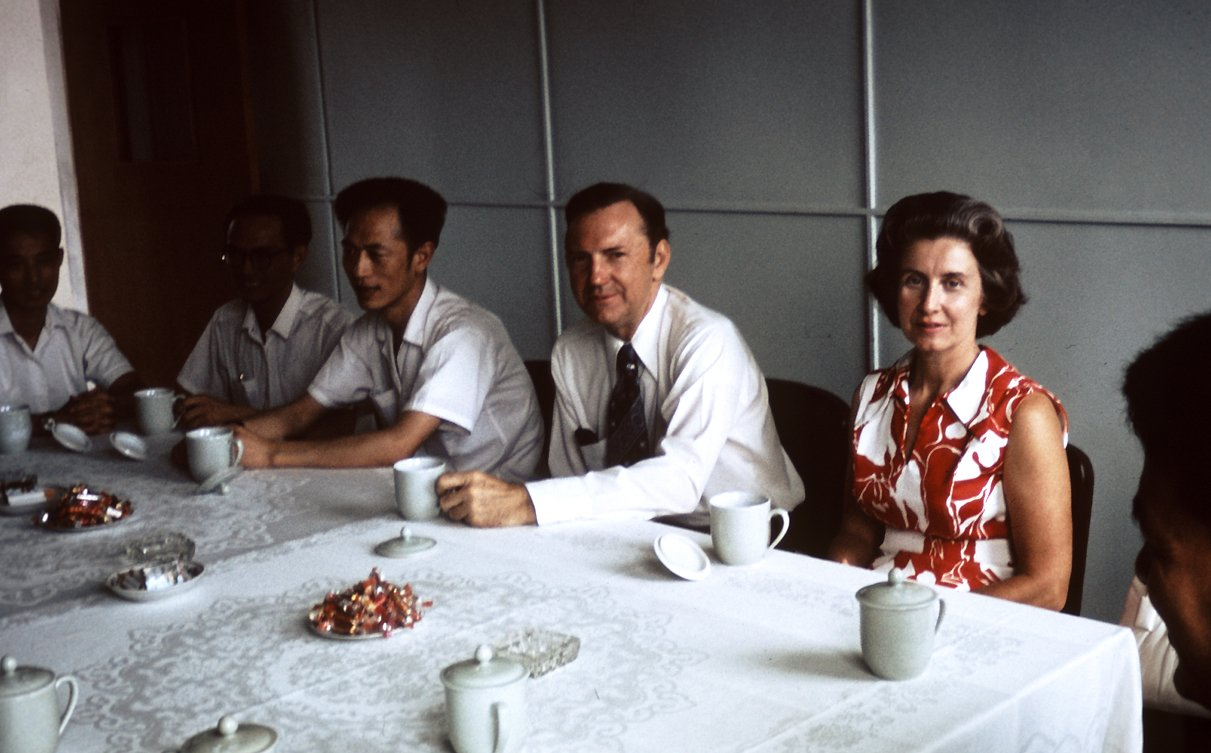Howard and Helen's Trip to China, Part Two
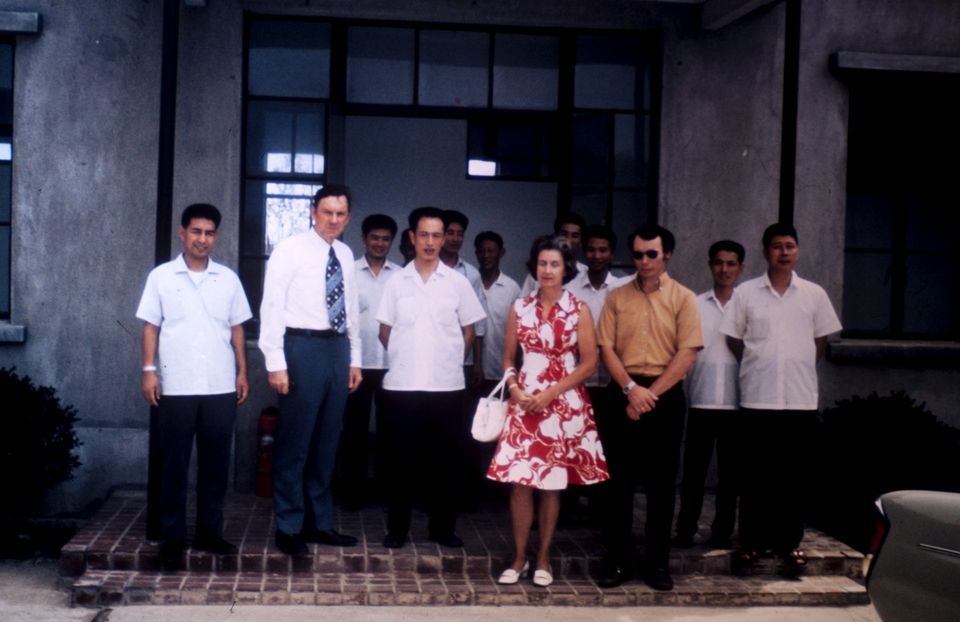
August 12
We had breakfast the next morning at 8:00 a.m. and discovered to our sheer delight that the dining room was air-conditioned- a very rare treat in China. When we arrived in the dining room the waiters asked what country we were from and then assigned us to a table. We waited to order until Tin Win arrived--as he speaks Chinese, which ability proved to be an immense help during our whole trip. There is, however, a bilingual menu, made of many pages enclosed in plastic, listing the various foods available for each meal. We ate ''western" style breakfasts; although the Chinese food which we ate at all other meals was far superior. Their bread is quite heavy and coffee poor. They do an excellent job with omelets, as might be expected. Men seem to get three eggs, no matter how many they order. There is no orange juice--would we like some orange soda? They have only a very limited amount of fresh fruit; occasionally none at all. After breakfast they ask if you will have a Chinese luncheon or western style. They seem to want to know only for the purpose of setting up the table ahead of time. Meals are very inexpensive--breakfast or lunch for the three of us cost only 5 yuan or $2.50.
At 9:45 the car and driver, which had been assigned to us on a 24-hour a day basis by Machimpex, took us to their office. The driver even slept at the hotel while we were there, which proved helpful, for TinWin occasionally had to go out late in the evening to file messages at the Telegraph Office. On the way to Machimpex, we drove through Ten An Men square and past government buildings such as the Great Hall of the People, the Museum of the Revolution, etc. We also saw the charming park area where the government guest houses are located in which the Nixons stayed while in Peking.
The main streets of the city are lines with trees. The traffic is mostly bicycles, some trucks, buses and rarely cars. All trucks, buses and cars blow their horns all the time. The bicyclists seem to pay little attention to them. The streets of the cities in China are very clean; there is absolutely no litter. The old parts of Peking are often enclosed in grey walls. The houses behind them, which you cannot see, are apparently one story high and no more. It is a most interesting city to observe--much more oriental in appearance
than Canton, Shanghai or Tokyo.
At the Machimpex office we met with Deputy Director General Mr. Li, Mr. Han, Mr. Hsu and Mrs. Liu. We had numerous cups of tea, a delicately flavored jasmine, during the conference. Mr. Li, who talked through an interpreter, was very interested in RCA Corp.: size, relative position among U.S. corporations, products produced, etc., desiring to hear of the various types of products which could be sold to China, noting briefly that it was "unfriendly" of the U.S. Government to restrict certain products from being sold to them. Color TV was mentioned. Howard gave him a copy of the 1971 Annual Report of RCA, which was received with great interest. He requested Howard to describe at some later point in their discussions RCA's products.
The schedule for the week was then laid out. Provision was made for my entertainment, shopping, etc., with Mrs. Liu. From the time we crossed the border, our entire 11 days in China were very carefully programmed. We had virtually no free time--none in the daytime and except for the first two evenings, none in the evening. On those two evenings we ate in our own hotel and then at the Hsin Chiao Hotel, which is another hotel where the government assigns foreign guests, usually diplomatic corps people, while awaiting the location of apartments. In the rare instance where we suggested some change in schedule, there were "complications" and no changes were made.
We went back to our hotel for lunch--Chinese style--which was excellent. You can either order the "Chinese" luncheon of the day, which consists of three or four courses, or order individual dishes of your own choosing.
At 3:00 p.m., when Howard and TinWin went back for a business meeting (Chinese offices are open from 8:00 to 6:00 and close from 12:00 noon to 2:30 for lunch), I was taken shopping by Mrs. Liu and Mr. Wang. We went to the traditional street of antique shops called Liu Li Chang. Apparently, years ago, there were many there; now there are just four, government-run, like all stores. Each store specialized in a certain type of antique, i.e.: pottery, tomb rubbings, paintings and jade. I found some nice pottery pieces, but inasmuch as I had heard that nothing over 80 years of age could be taken out of the country, I postponed buying them until I could be sure it was all right to purchase things 100 years old. Machimpex later assured me that anything in those stores was able to be exported from the country.
Next we went to a "Friendship Store," which is a government store where new products are displayed for foreigners to purchase. It is divided into sections, each having its own specialty. They sell all types of modern items, such as cloisonne vases, scroll paintings, fans, jewelry, ivory carvings, silk by the yard, mandarin coats, etc.
That evening we had dinner at our hotel, and we tried their white wine. It was rather too sweet. They do have one which is somewhat like a Rhine wine, but it was not available that night. There is no whiskey of any kind available in China, for they neither import nor produce any. They have a few wines, red and white, and, of course, their famous Mao Tai, which is used for toasting at dinner parties.
